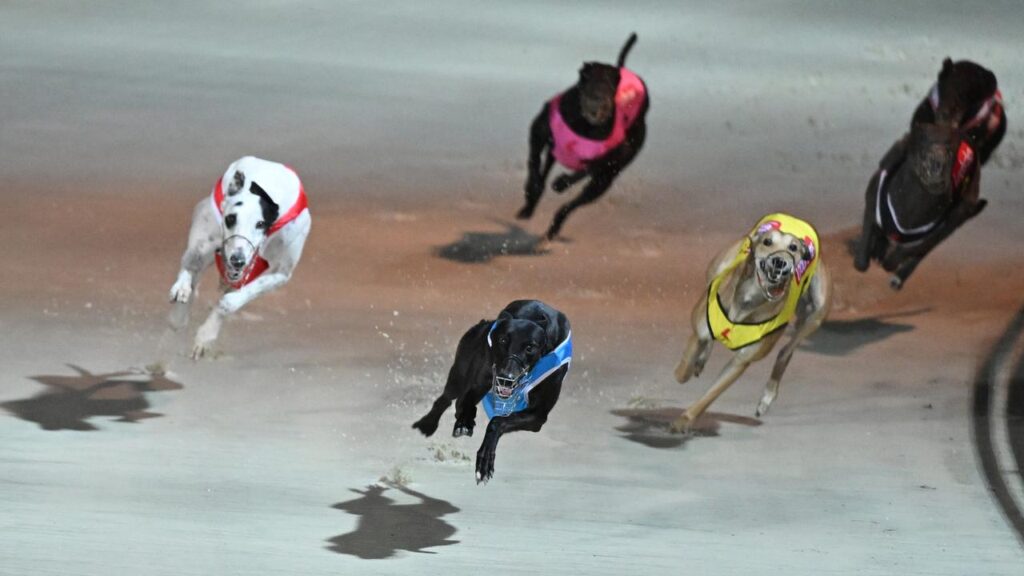Another greyhound racing ban could see dishlickers done
Melissa Meehan and William Ton |

A state leader’s bid for political power could spell the death knell for greyhound racing across Australia as animal activists hail an end to the controversial sport in the Apple Isle.
The tenuous Tasmanian administration of Premier Jeremy Rockliff has announced it will phase out greyhound racing by mid-2029 as it works to shore up support from independents to continue in minority government.
The timing would coincide with the end of a government funding agreement and make the island state the second jurisdiction in Australia to stop the sport.

The ACT banned greyhound racing in 2018.
Mr Rockliff said the time had come to make a call on the future of greyhound racing in the state.
“It’s time to draw a line in the sand and ensure an orderly exit from greyhound racing in Tasmania,” he said on Sunday.
He acknowledged the news would be “extremely disappointing” for many in the greyhound industry, but said it had become increasingly clear the sport didn’t align with community expectations.
The decision comes after a “great” of Tasmanian greyhound racing, Raider’s Guide, was euthanised in July after falling and breaking its neck at a Launceston track.
The four-year-old dog had been named Greyhound of the Year in January after notching 17 wins in 2024.

Coalition for the Protection of Greyhounds president Amy MacMahon said she was elated by the news, but she emphasised the need for a phased-out approach to ensure ethical rehoming of greyhounds and support for affected workers.
“I think this sends a signal to other states and territories that the tide is turning against greyhound racing … I hope it’s just a matter of time,” she told AAP.
Other states were already questioning the future of greyhound racing, Ms MacMahon added, with South Australia putting the industry on notice after a damning report in 2023.
NSW is also awaiting findings of the Drake inquiry, a long-running probe into the sport following the release of a report by the state industry body’s former chief vet that highlighted widespread animal welfare issues.
One of the state’s best-known venues, Dapto Dogs, will cease operations in the coming year after nearly 90 years of hosting races due to its lease expiring.

RSPCA Tasmania commended the Rockliff government’s plan to phase out greyhound racing, labelling the sport a “relic of the past” and urging all MPs to support the ban.
Mr Rockliff was reinstalled as premier on Wednesday after the governor granted his request to form a minority government.
Neither his Liberals with 14 seats nor Labor with 10 have secured the required 18 to govern in their own right after a snap election produced another hung parliament.
The Greens, which hold five seats, and independent Kristie Johnston have advocated for the banning of greyhound racing.
Ms Johnston reiterated on Sunday she wouldn’t do a deal with one of the major parties, but added the end of racing was a “demonstration of what power sharing looks like in parliament”.
Labor leader Dean Winter plans to move a no-confidence motion in the Rockliff government when the parliament returns for the first time on August 19.

He described the greyhound racing announcement as a “political bid to cling onto power”.
Any decisions of that magnitude, like shutting down a greyhound industry that employed hundreds of people, should be taken carefully and follow due process, he said.
Veteran economist Saul Eslake recently reviewed the state’s finances and found greyhound racing in Tasmania was almost entirely dependent on government funding.
The industry would receive $7.5 million in state funding in 2024/25 alone and it was spending more than twice the national average to keep the sport afloat, he said.
AAP